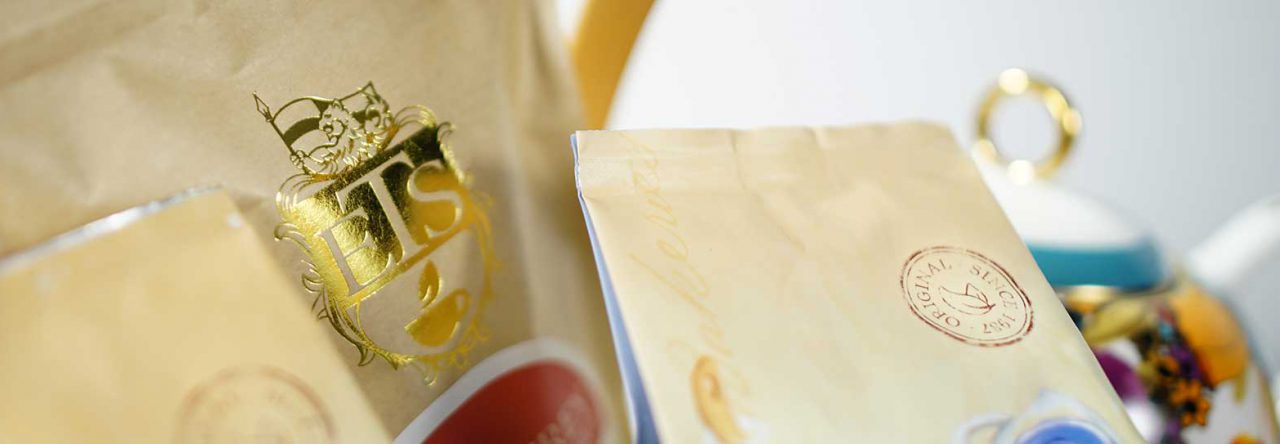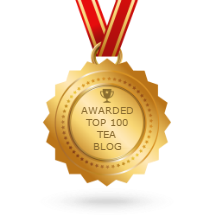By A.C. Cargill
There’s a trend to apply the term “tea” rather loosely these days. Just about any beverage steeped from plant matter is being called tea. From hibiscus, to chamomile, to rooibos and honeybush. Even gardeners have gotten into the act, calling their watered down organic fertilizer “compost tea” (wouldn’t want that in my teacup!). Some justify all of this by saying that we have a “fluid” language (sorry for the pun!).

Fortunately, many tea companies and authors (people who know and write about tea) know how to properly apply the term “tea.”
A few examples (there are many more):
- Lindsey Goodwin in her article Tisane Basics and three-part list of tisanes.
- Harney & Sons labels their rooibos as simply “rooibos herbal.”
- Mighty Leaf labels their Chocolate Mint Truffle as “an herbal infusion” (I sampled a cupful and found it heavy on mint, light on chocolate, and totally lacking even a truffle concept).
Unfortunately, Twinings labels their Chamomile as “herbal tea.”
The more I learn about tea, the more important such matters grow to me. But terminology quickly takes a back seat to other issues: where tea leaves were picked, what the growing season weather was like, which harvest (e.g., first of the year), etc. Those who are really into wine and cheese know what I mean. Wine aficionados want to know where the grapes were grown, the year harvested and bottled, the vintner, etc. Cheese gourmands want to know what kind of cow (or goat, etc.) gave the milk, what feed or grazing, how processed, etc. You get the idea. Where these things are concerned, familiarity does not breed contempt but a desire to know more.
Getting back to terminology, I quote Shakespeare: “A rose by any other name would smell as sweet.” Great, but does the reverse apply? Will anything called a rose have the appearance, fragrance, touch, etc., of the plant we call a rose? Does anything called “tea” have the properties ascribed to true tea, that is, the beverage brewed from leaves of the Camellia Sinensis plant? If you’re looking for something caffeine-free, the answer is definitely “no.” Herbals, for the most part, are truly caffeine-free, whereas decaffeinated tea may still contain some caffeine (I have seen reports either way, so the jury is still out on this). Rooibos is known for various health benefits, but they’re different from those attributed to green tea.
Our living language changes almost daily. Words and meanings come and go. (No wonder my Shorter Oxford English Dictionary takes up two volumes!) All the more reason to stand guard when a word starts to lose its meaning through abuse. That seems to be happening now to the word “tea” — it’s become so broad in usage as to lose it’s true meaning.
As a writer, I cherish words. They’re my tools and the basis of communication. I would no more abuse them than I would leave my paint brushes standing in turpentine for weeks so that bristles rotted or a sculptor would leave his chisels out in the rain to rust. More important is that misuse causes communications breakdown.
Another point to consider: tea growers. They know what true tea is and have dedicated their lives to it. They know the Camellia Sinensis plant, including varietals, when to harvest, how to process the leaves and buds to get specific types of tea (estimated in the thousands), how to store them, and how to properly ship to blenders and vendors. Imagine if you were so dedicated, only to find that the product you spent your lifetime creating was debased to the level of a cheap knockoff (as the name “Gucci” was affected). Out of respect for all of these hard working people, I’ll stick to calling “tea” only those beverages made primarily from the Camellia Sinensis plant, but that’s my personal choice.
Next time someone offers you tea, better get the details and know what you’ll be drinking!
Check out A.C.’s blog, Tea Time with A.C. Cargill, for more on living the tea life!



Leave a reply to The Benefit Claims of Herbals « Tea Blog Cancel reply